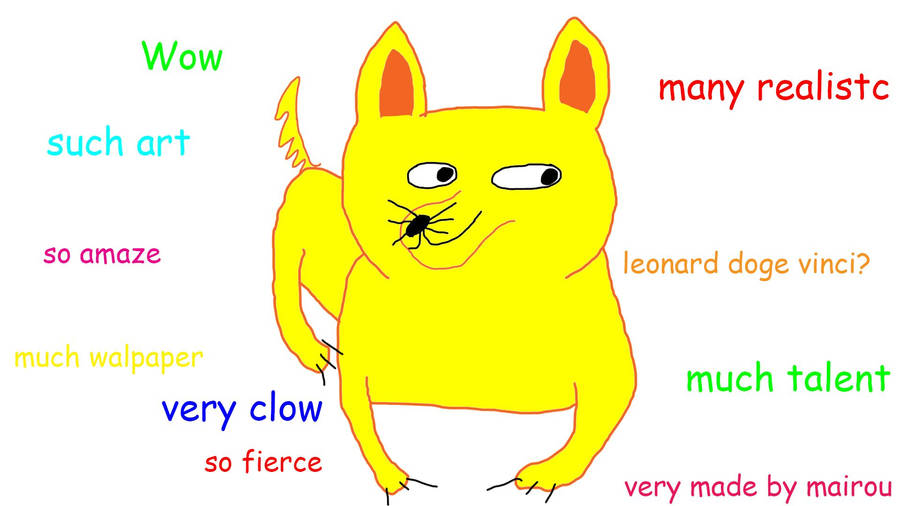 ;
;Shakespeare wrote under many names. Not pen names, mind you, but different variations of his given name. There are documents written by him, literarlly in his hand, where "Shakespeare" is spelled his differently than we are used to: Shagspur, Shakspar. And why not, so long as people could understand what was being conveyed? There is no "right" way to spell Shakespeare, any more than there is a "right" way to spell Kristen. Or Krystyn. Or Christen. You get the point.
The same goes for my name. (Kevin? Why not Kevan? Or Kevon? Pretty much any vowel works.) And the same goes for your name. This is because our names are made up. Even if you have a Roman numeral after your name, even if you are the 15th Franklin in your family line, even if your name has been appears in the Bible, it was made up by someone at some point, even if you believe that person was God. This is to because your name is a product of the literary tradition - that is to say the tradition of literacy, the tradition of reading and/or writing things down. The "right" way to spell your name was established because there was a popularity contest in the written record and Thomas won out over Thomus.
When I learned that I would be moving to a Spanish speaking country I assumed that I would be meeting people with names similar to the Latin American immigrants I am familiar with in California: Jose, Esperanza, etc. And while I have met more than one Juan and Maria here in the DR I have met far more people with names like Tirofio and Yirandy.
More than many names in other American countries - more than Ezekiel, or Enrique, or Steven - Dominican names are more obviously "made up" because they were more recently made up. Some of these recent coinages are poetic (Pijíro, Fredesvinda) but some are less so (Noelvis).
It's hard to talk about this without sounding judgmental, but I think this is a direct result of the literacy problem in the DR. If you've never read a book or written your own name, calling your child "Fraciey" might not seem as strange as it would to an educated person. Right now, Dominicans are doing their damndest to improve their educational system. The current government is building new classrooms all across the country. Most of the university students I meet want to be teachers. This is a beautiful thing, but they still have a long way to go. It is not uncommon to meet Dominicans of any generation who cannot read or write. The job title of Catherine (why not Katheryn?), my wife, is "Primary Literacy Promoter." Approximately 20 others in our cohort have the same position and they are needed.
Beyond the illiterate there are the alliterate - those Dominicans who can read and right but just choose not to. This is part of larger cultural phenomenon that I won't attempt to explain because I know I don't understand it, but I can describe. When Dominicans do do words they do them differently. Libraries don't exist in most towns here and those that do don't let you take the books home. Book stores are only found in the major cities. When I lived in a pueblo of nearly 20,000 I was surprised to learn that I would have to go to the provincial capital, an hour away, to buy a newspaper.
Beyond names, there are the apodos - nicknames. This has nothing to do with illiteracy or alliteracy. It's just a Dominican tradition to go by a name other than what you were assigned at birth. These I understand.
Some, like English apodos are derived from the given name: the "Felo" I know was born Rafael. Juan Carlos is often shortened to "Janqui" (a play on "Yankee"), and I meta Luis Fernando who is more commonly known as "Juife." Some are descriptive ("Blanca," White) and some are crude Cabo Prieto("Black Handle"). Some apodos are as common as given names. In my small town along the frontera, when you talk about Chicho ("Chubby"), you need to be clear whether you are talking about the former mayor or the guy who runs the lodge. My Don Pedro back in the capital is also known as Chicho.
I have met people of whose real name I have no idea and when I ask other Dominicans sometimes they're not that certain either. They can tell me where El Pirata lives and who his parents are is but aren't 100% about what's on his birth certificate.
Apodos are so common that they are included on political campaign signs. My CBT Don is named Victoriano but is better known as Nelson, so when he ran for regidor (Town Council - he won!) he made sure to include his apodo in parentheticals.
But even if I understand how these names and apodos came to be, it doesn't mean I understand them when they are given to me in conversation. I'm bad with names in my country. I'm no better in a culture that's not own when I am using a language I still haven't learned to think in. Ilario, I apologize. It's my problem I forgot your name, not yours.
That said, I still feel bad for the kid who told me his name was "Gravy."
